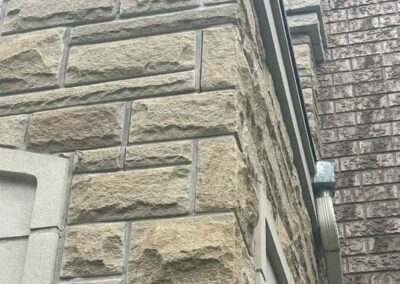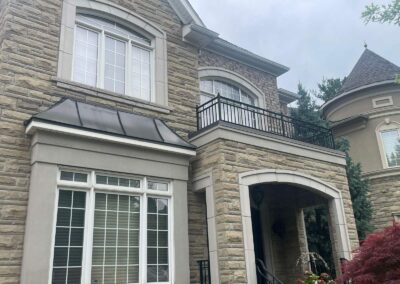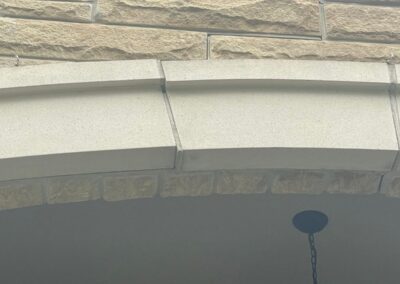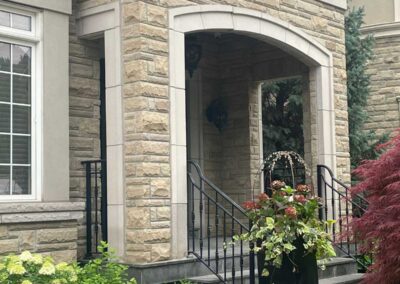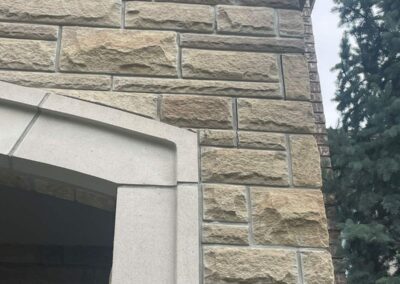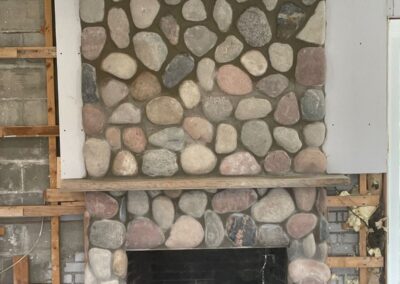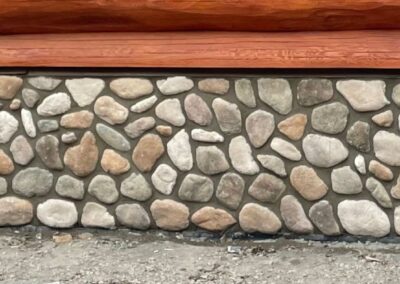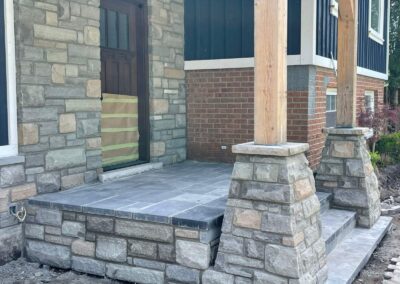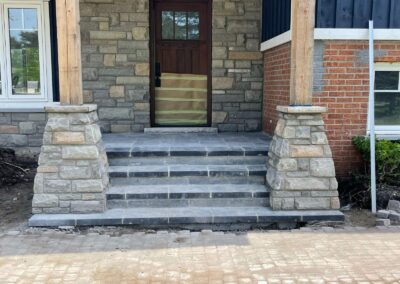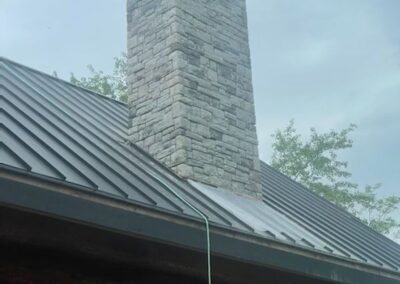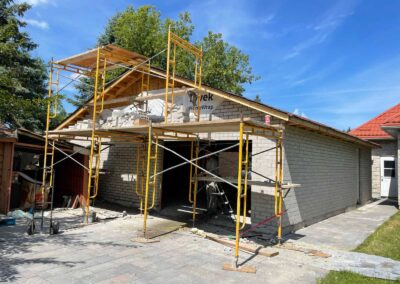Masonary Work
Phone:
Location
Masonry works in Toronto and Hamilton
Masonry is the work done by a mason using stones and bricks of different types and mortar in Toronto and Hamilton. As a rule, rows of bricks are placed on top of each other to build a structure like a brick wall. Bricks can be distinguished from blocks by size.
Types and purposes of masonry
Masonry is a structure made of stones and bricks laid on mortar in a certain order. The masonry takes the load from its own weight and other structural elements resting on the masonry and the loads applied to them, and also performs heat, sound insulation and other functions.
The following types of masonry are used in the construction of buildings and structures: brick; from ceramic stones and artificial large blocks made of concrete, brick or ceramic stones; from natural stones of the correct shape (sawed or hewn); debris made of natural, unhewn stones that have an irregular shape; mixed (brick masonry, faced with brick; from concrete stones, faced with brick; from brick, faced with hewn stone); lightweight brickwork with heat-insulating layers of light concrete, slabs and other materials.
Masonry is performed on lime, mixed cement-lime and cement mortars, as well as on cement-clay mortars, which contain clay, a plasticizing additive. The type and brand of solution are indicated in the working drawings. When building concrete masonry, unhewn natural stones of an irregular shape are not laid on top of the solution, but embedded in concrete.
The type of masonry is assigned in the project taking into account the operating conditions, the capital of the building or structure under construction, and the economic feasibility of using the materials.

Due to its good resistance to moisture, high strength, and frost resistance, masonry made of ceramic brick of plastic pressing is used in the construction of walls and columns, built and constructed, retaining walls, chimneys, various structures of underground structures in Toronto and Hamilton.
Masonry made of ceramic hollow or porous-hollow brick is recommended to be used for the walls of buildings. The low thermal conductivity of these masonry allows to reduce the thickness of the outer walls by 20…25% and to reduce the mass by 20…30% compared to the mass of walls made of solid bricks.
Masonry from concrete stones on heavy concrete is intended for the construction of foundations, walls of basements and other underground structures.
Masonry made of hollow and lightweight concrete stones is used for the construction of external and internal walls of buildings in Toronto and Hamilton. Lightweight concrete and hollow stones have good heat-insulating properties. However, they are moisture-retentive and, as a result, not frost-resistant enough. Therefore, the facades of the external walls, made of these stones, are plastered. Low-quality lightweight concrete and hollow concrete stones are used only for the construction of structures inside the building in rooms with a normal temperature and humidity regime.
Masonry made of silicate brick stones is more heat-conductive, has a high density, but at the same time is stronger and more durable than masonry made of lightweight concrete stones. Therefore, it is widely used for the construction of not only internal walls, but also external ones. Masonry made of silicate bricks of semi-dry pressing and ceramic hollow bricks are unsuitable for the construction of structures that will be in wet soils, as well as in damp and wet rooms, for the installation of furnaces, pipes, smoke and exhaust ducts.
Masonry made of ceramic hollow stones as the most effective artificial material is used mainly for the construction of external walls of heated buildings. The high heat-technical properties of this masonry make it possible to reduce the thickness of external walls in the middle lane of the country by 1/2 brick compared to masonry made of ceramic or silicate bricks.
Masonry from large concrete, silicate or brick blocks, as well as from artificial materials, is used for the construction of underground and above-ground structures of buildings and structures. Blocks made of heavy concrete and bricks of plastic pressing are used: walls, foundations and other underground structures, and blocks made of light concrete, silicate, hollow and porous-hollow bricks – mainly for external walls of buildings.
Masonry made of natural stones and blocks of the correct shape has high strength, resistance to weathering and freezing, low abrasion, decorativeness.
External and internal walls of buildings are laid out of soft porous rocks with a density of 900…2200 kg/m3 (shellstone, porous tuffs) in the form of sawn artificial stones weighing up to 40…45 kg. Large wall blocks are also made from porous rocks (limestones, tuffs).
Due to the high cost and time-consuming processing, processed natural hard stones are mainly used for decorative purposes, for example, for facing plinths or other parts of monumental public and industrial buildings and structures, bridge piers, embankments.
Brick and concrete masonry have significant thermal conductivity. When local stone materials are available, these masonry are recommended for foundations, and when erecting masonry with brick or other materials – for basement walls, retaining walls and other engineering structures.
Lightweight masonry is characterized by the fact that, in order to reduce their costs and reduce the thermal conductivity of the walls, some of the bricks are replaced with lightweight concrete stones, filled with porous building materials or air layers.
The price of masonry work is calculated individually and depends on the specifics of the individual area and the type of stone chosen. Our prices for masonry work in Toronto and Hamilton will pleasantly surprise you! For more detailed information, contact us at +1678850450.


